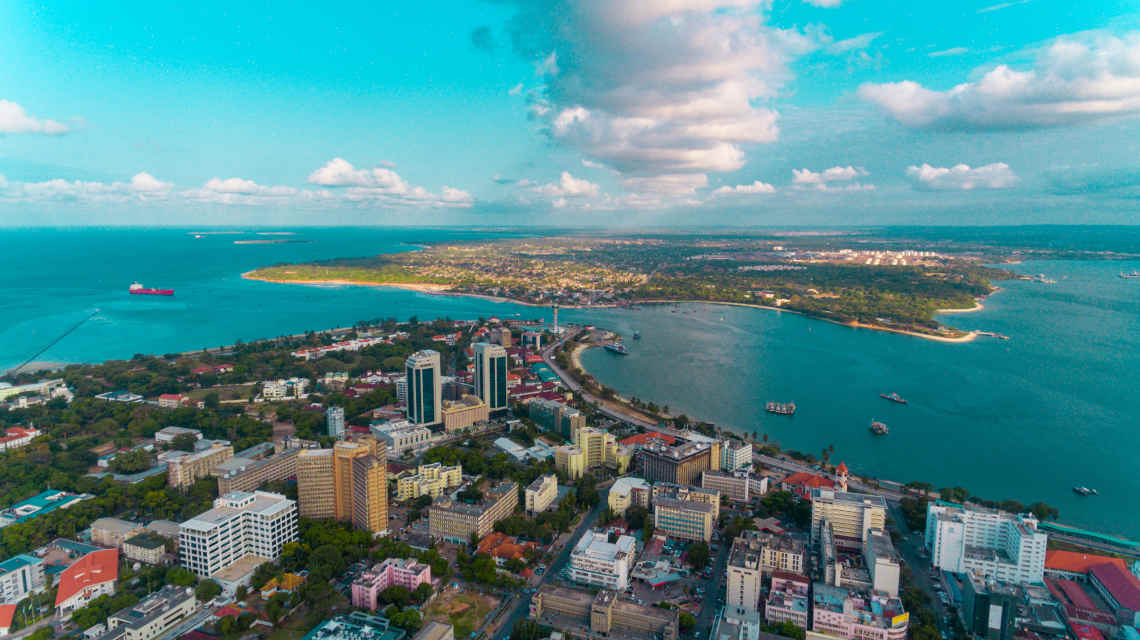坦尚尼亞市場研究

坦尚尼亞是東非的共和國。其北部邊境與烏幹達和肯亞接壤。西邊是剛果共和國、盧安達和蒲隆地。坦尚尼亞南部也與馬拉威、莫三比克和尚比亞接壤。此外,印度洋沖刷著該國的東部海岸線。
坦尚尼亞的綽號是「非洲之魂」。這個名稱的產生是由於其豐富的文化和歷史以及多樣化的野生動物。另一個特點是它的國家公園,其中包括塞倫蓋蒂。非洲大陸最高峰乞力馬扎羅山也位於坦尚尼亞,這是一座海拔 5,895 公尺(19,340 英尺)的休眠火山。
重點產業
採礦、能源、建築和工程構成了坦尚尼亞的經濟。
此外,坦尚尼亞也出口農產品、原料、礦石、金屬和製成品。咖啡、菸草、棉花、腰果和茶葉幾乎佔坦尚尼亞出口總額的一半。
全球經濟放緩影響了出口導向產業。旅遊業和傳統出口就是兩個這樣的部門。這場危機也抑制了國內經濟活動和進口,影響了生計。
達累斯薩拉姆在斯瓦希里語中意為“和平的天堂”,是坦尚尼亞的頂級城市。此外,達累斯薩拉姆是非洲發展最快的城市。自 1980 年代中期以來,其人口一直在增長。事實上,它正在成為東非最大的商業中心之一。
社群
馬薩基是達累斯薩拉姆的富裕地區。此外,這裡也是外國僑民和政要的聚集地。更不用說,這裡還提供來自世界各地的各種美食。此外,許多酒吧和酒廊與這些餐廳結合在一起,營造出充滿活力的夜生活。
巴哈里海灘 (Bahar Beach) 既有年輕的家庭住宅,也有老年家庭住宅。這個安全區域提供了很大的漫遊空間。人口的成長意味著更多的商店、飲食選擇和交通連結。
坦尚尼亞的官方首都是多多馬,距離印度洋內陸約 300 英里。由於達累斯薩拉姆的發展,將政府從舊首都遷出的努力一直進展緩慢。
然後是桑給巴爾島,這座島嶼盛產香料,文化吸引國際遊客。這是一個秘密天堂,白天有清澈的海水,晚上有滿月派對。
趨勢
過去十年為坦尚尼亞聯合共和國帶來了強勁的經濟成長。最近的焦點是精簡行政管理。政府表示,這將提高公共部門的效率。同時,它也採用了其他有效的策略。例如,它使用電子處理文件和付款。稅收和貿易相關文件等數位基礎設施取得了顯著進展。
坦尚尼亞發展願景力求在 2025 年實現國家轉型。它的目標是使其成為中等收入和半工業化經濟體。
坦尚尼亞的商業機會看起來一片光明。能源板塊大放異彩。隨著交通基礎設施的改革、可靠和高效,坦尚尼亞人可以期待出口成長。製成品和農產品的出口也存在潛在成長。隨著港口活動的增加,服務業和旅遊業在中期內可能會增加。
該國需要商業部門的進一步發展。該領域的進步將有助於坦尚尼亞提高全球商業環境排名。過去,腐敗問題和基礎設施薄弱曾阻礙該國的發展。另一個障礙曾經是難以獲得融資。
優點和優勢
坦尚尼亞在外國直接投資方面在該地區其他國家中名列前茅。許多跨國公司關注該國的能源資源,因為坦尚尼亞南部海岸擁有天然氣儲量。坦尚尼亞政府鼓勵本地和國際投資。
旅遊業與房地產和交通運輸一樣,是坦尚尼亞成長最快的產業之一。
消費者基礎
疫情期間,許多坦尚尼亞人遭受了經濟損失。失業率的上升是由於銷售急劇下降和現金流不足造成的。經濟衝擊使坦尚尼亞的平均人口更接近貧窮線。
在坦尚尼亞發展業務的理由
那些在坦尚尼亞投資的人可以受益於進入一個穩定成長的市場。世界銀行最近將坦尚尼亞經濟從低收入升級為中低收入。因此,隨著需求和消費者可支配所得的增加,現在正是投資的時機。
國際夥伴關係是坦尚尼亞政府的重點。境內證券交易所上市公司可擁有100%外資持股。對於符合資格的企業,還有稅收和投資激勵措施。
坦尚尼亞市場研究
任何經驗豐富的投資者都知道市場研究的價值。即使是那些探索潛在商業想法的人也應該進行定性、定量和策略研究。坦尚尼亞的市場研究將為您的企業進入坦尚尼亞市場做好準備。
訪談和調查還可以讓您更深入地了解市場機會。焦點小組和數據分析是坦尚尼亞市場研究的其他有益工具。


